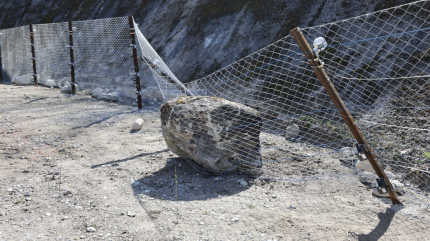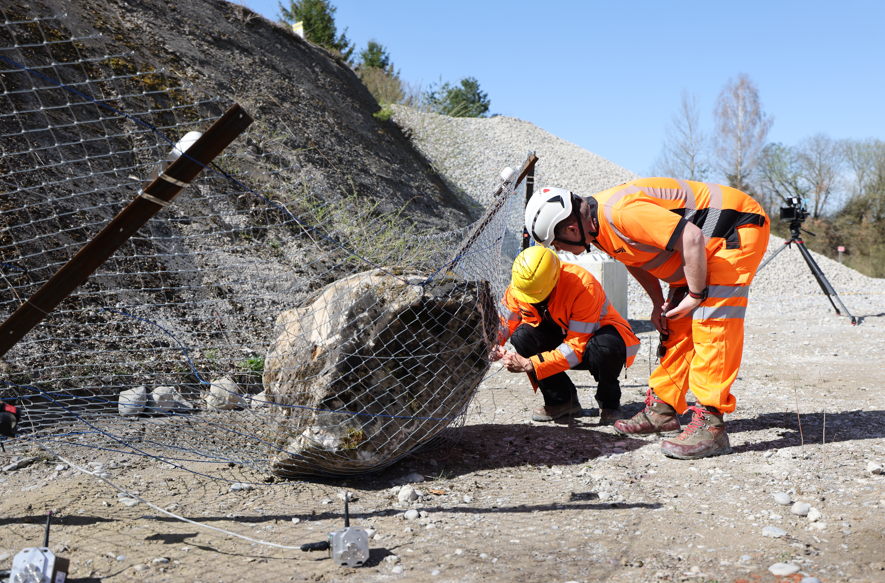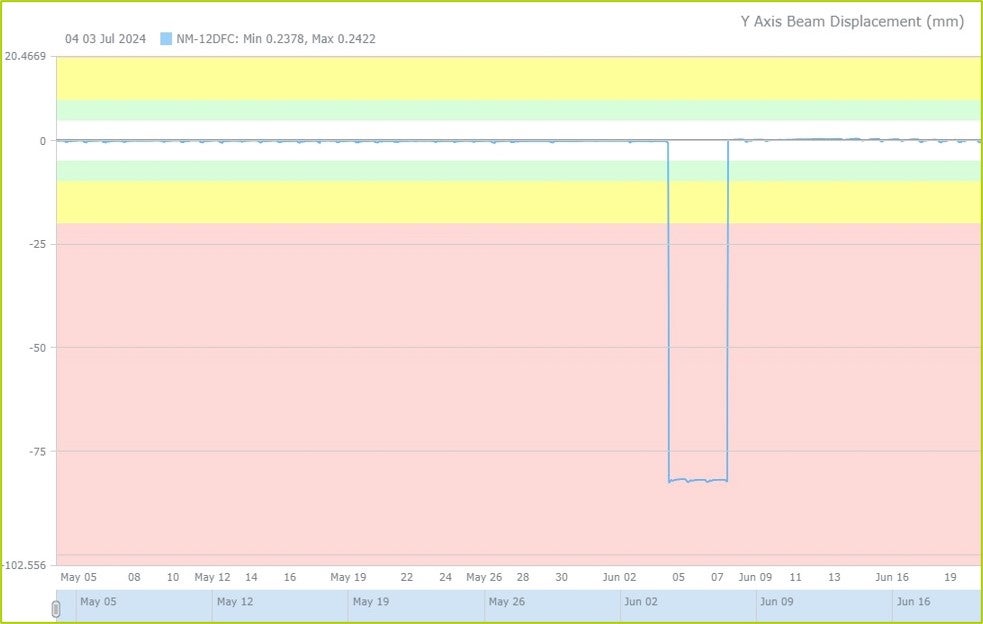
Engineers at wireless remote monitoring specialist Senceive have developed a powerful new application of their responsive InfraGuard™ monitoring technology – automated rockfall detection. Designed specifically to address the unique challenges posed by rockfall hazards, this innovative solution provides near real-time detection of sudden rockfall events, offering rapid, precise alerts with high-quality photo verification for quick, actionable insights when every second counts.
The solution complements existing monitoring approaches and fills the gap between remote sensing technologies and conventional survey and inspection-based approaches. The former group includes slope stability radar and lidar scanning which provide remote coverage of large areas but require considerable up-front investment and a skilled support team to operate and maintain. In typical deployments these powerful instruments can detect tiny changes but are often moved around a mine site which reduces the frequency of readings and therefore the ability to monitor change. The latter group includes visual inspections and repeated geodetic surveys using instruments such as automated total stations. These techniques are flexible and the kit is less expensive, but data can be prone to human error and to be compromised in terms of resolution and sampling frequency. The solution offered by Senceive uses instrumented catchfences to detect rockfall and includes a combination of draw-wire sensors and tilt meters supported by automatic cameras which enables verification of an event before you can get people to the site. The system is easy to install and provides continuous data and automated alerts to remote users.
Wireless slope monitoring – adapting a proven technology
Wireless remote monitoring has a 20-year track record and slope stability monitoring is one of the biggest applications. Senceive users have installed more than 50,000 of the company’s precise, long-life tilt sensors on slopes to detect both long-term shallow deformation and sudden events such as landslides. Most of these deployments have been on earth slopes where failures are characterised by mass movement rather than discrete rocks and boulders.
Rock slope failures, unlike soil slopes, are characterised by the unpredictable movement of individual boulders or localised debris, which can be missed by a typical wireless slope monitoring system because material can fall in between tilt sensor locations. This poses a significant threat to operators of mines and other infrastructure, and a bespoke solution was needed.
Enter Senceive’s latest development – an innovative wireless detection system specifically tailored for rocky slopes. The system revolves around monitoring the effects of rockfall debris hitting instrumented catchfences and it provides a robust, reliable solution with a high detection rate and a minimal incidence of false alarms.

Camera confirmation for different types of rockfall events including:
- Rockfall detected by draw wire sensors. This method is based on sensors detecting the extension of draw wires fixed to the fence due to loading by rockfall debris. It is particularly sensitive to the gradual accumulation of material over an extended period.
- Impact on catchfence detected by tilt sensors. This approach is based on impact sensors in the Senceive NanoMacro tilt nodes mounted on catchfence stakes detecting a sudden acceleration or shock. It is ideal for detecting instantaneous events such as a small-to-medium sized boulder hitting the fence.
- Rotation of catchfence stakes detected by tilt sensors. This approach is based on the detection of rotational movement by the highly sensitive tilt sensors in the same NanoMacro nodes described above. Because it requires movement of the catchfence stakes it is the most reliable way of detecting a large-scale rockfall event that hits the fence with significant force.

Each of these detection methods is powered by the InfraGuard intelligent monitoring platform, which accelerates reporting and ensures immediate, automated transmission of high-resolution site images following an event. Built-in image processing enables the detection of football-sized objects at a distance of 50 metres in any lighting conditions, thus enabling remote users to distinguish real events from false alerts.
Designed for challenging environments
Built to withstand the challenges of the most rugged and remote locations, Senceive’s rockfall monitoring solution operates independently, requiring no external power or fixed communications infrastructure. This makes it an ideal choice for deployment in challenging, inaccessible areas where rockfall presents a serious risk to mine operations and to mine-related infrastructure such as road or rail links.
Learn more about the Senceive rockfall monitoring solution and how it works by visiting our Rockfall Application page.



